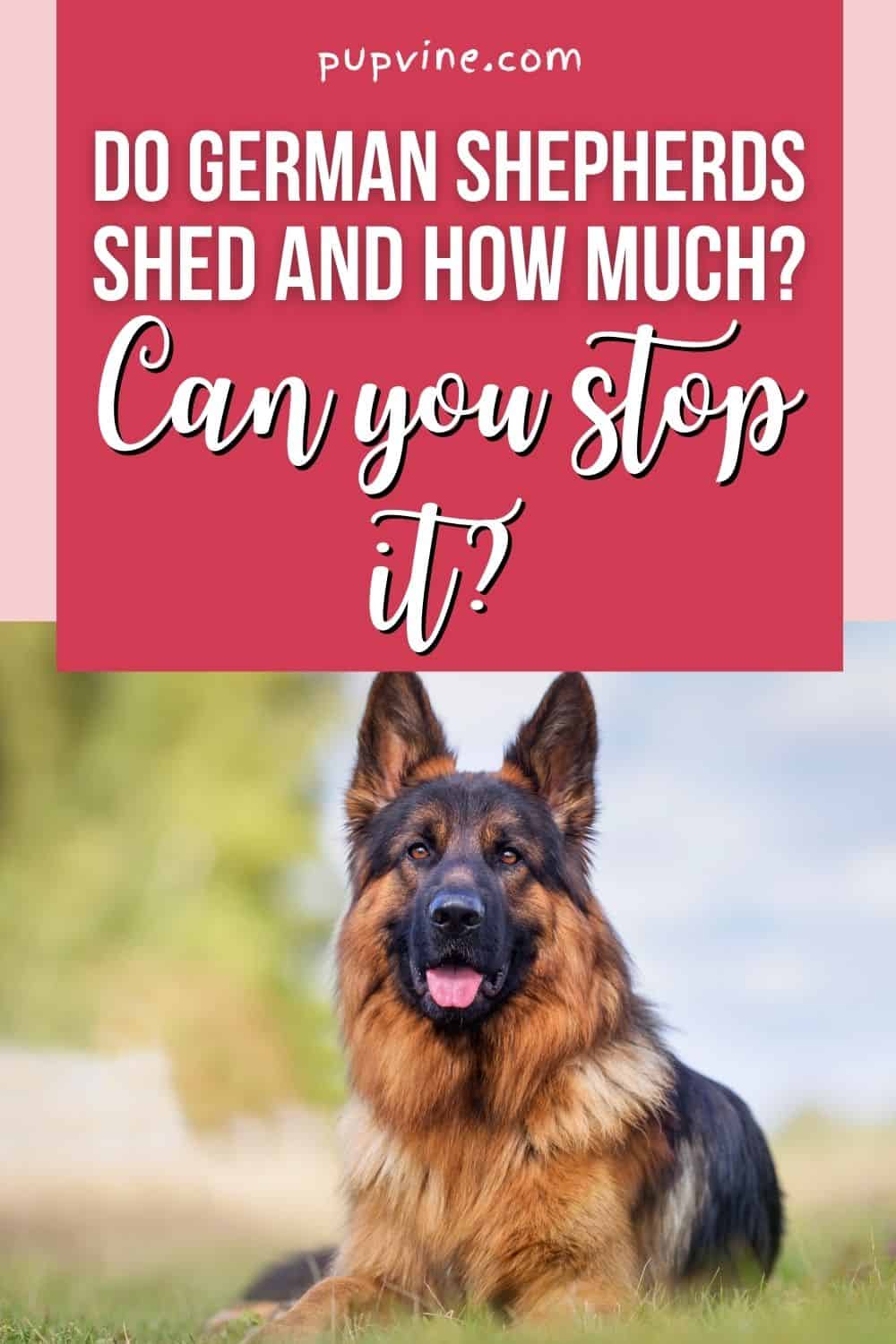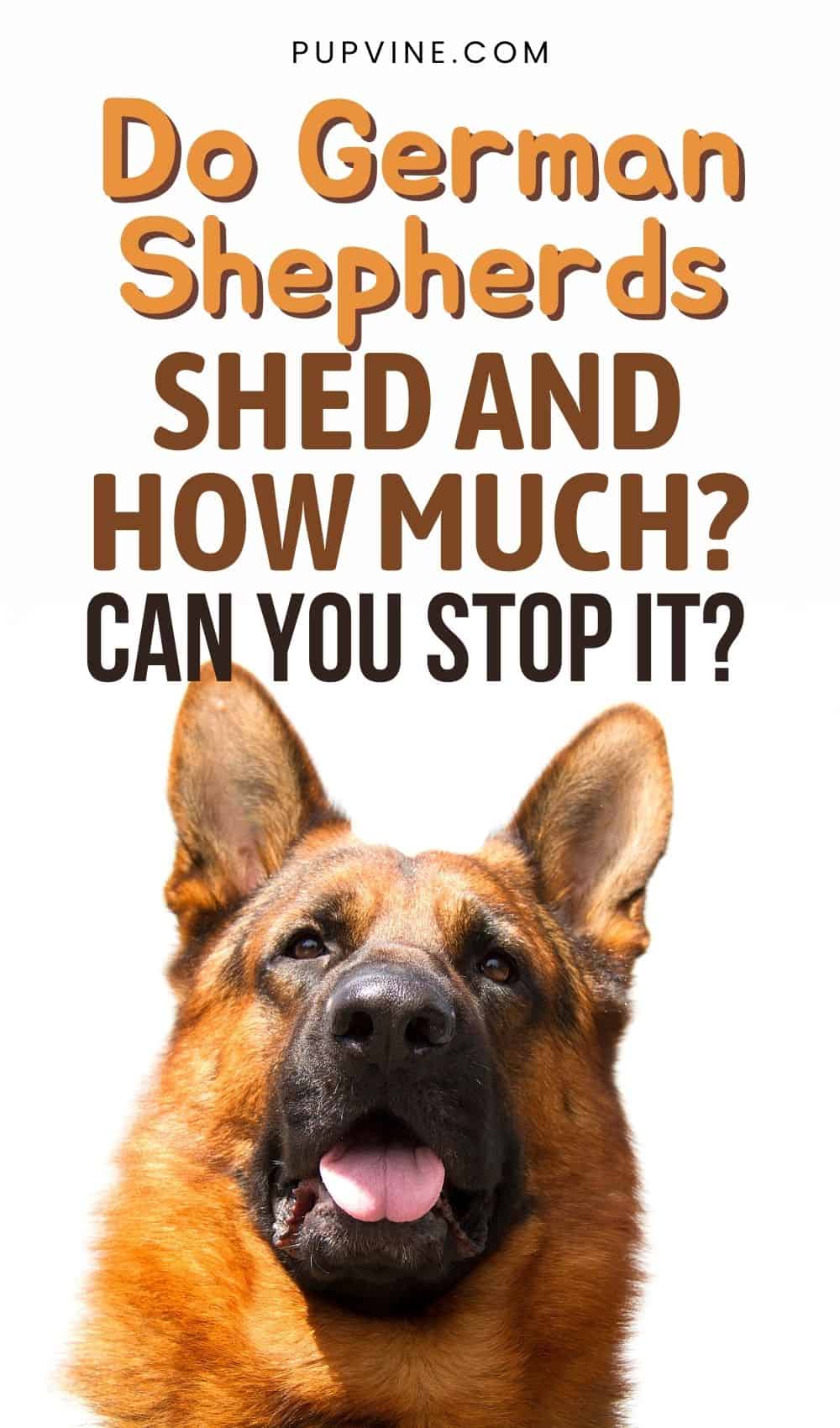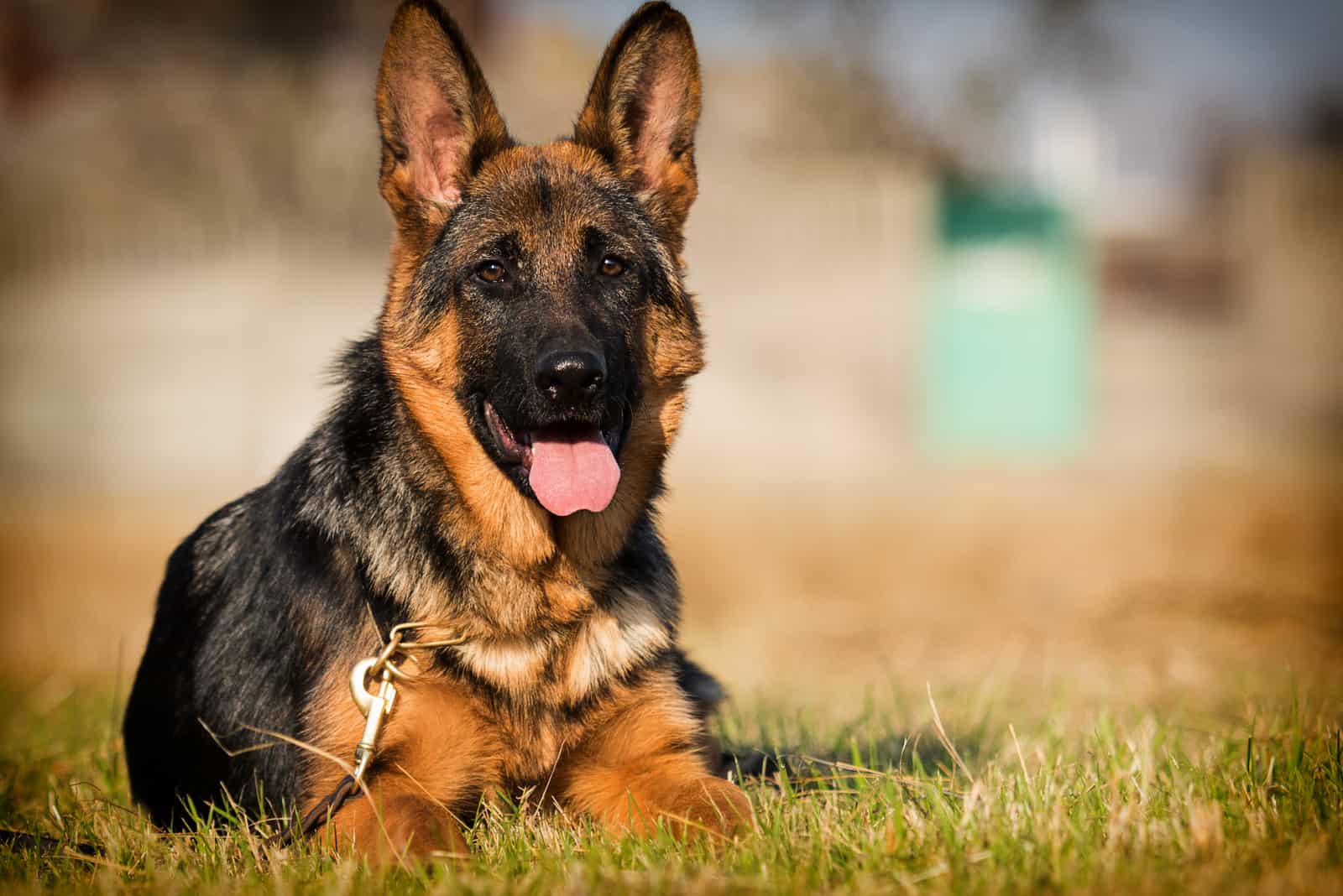Try asking a GSD owner, do German Shepherds shed? Then watch their reaction to see how much they laugh. They might even joke about how they refer to the breed as German Shedders.
If that wasn’t a big enough clue, let’s get this straight: German Shepherds shed a great deal!
Seriously, if you can’t stand the thought of dog hair around your home, the German Shepherd dog might not be the right one for you.
So, let’s unpack the GSD coat and see how much dog hair you should expect.
Do German Shepherds Shed A Lot?
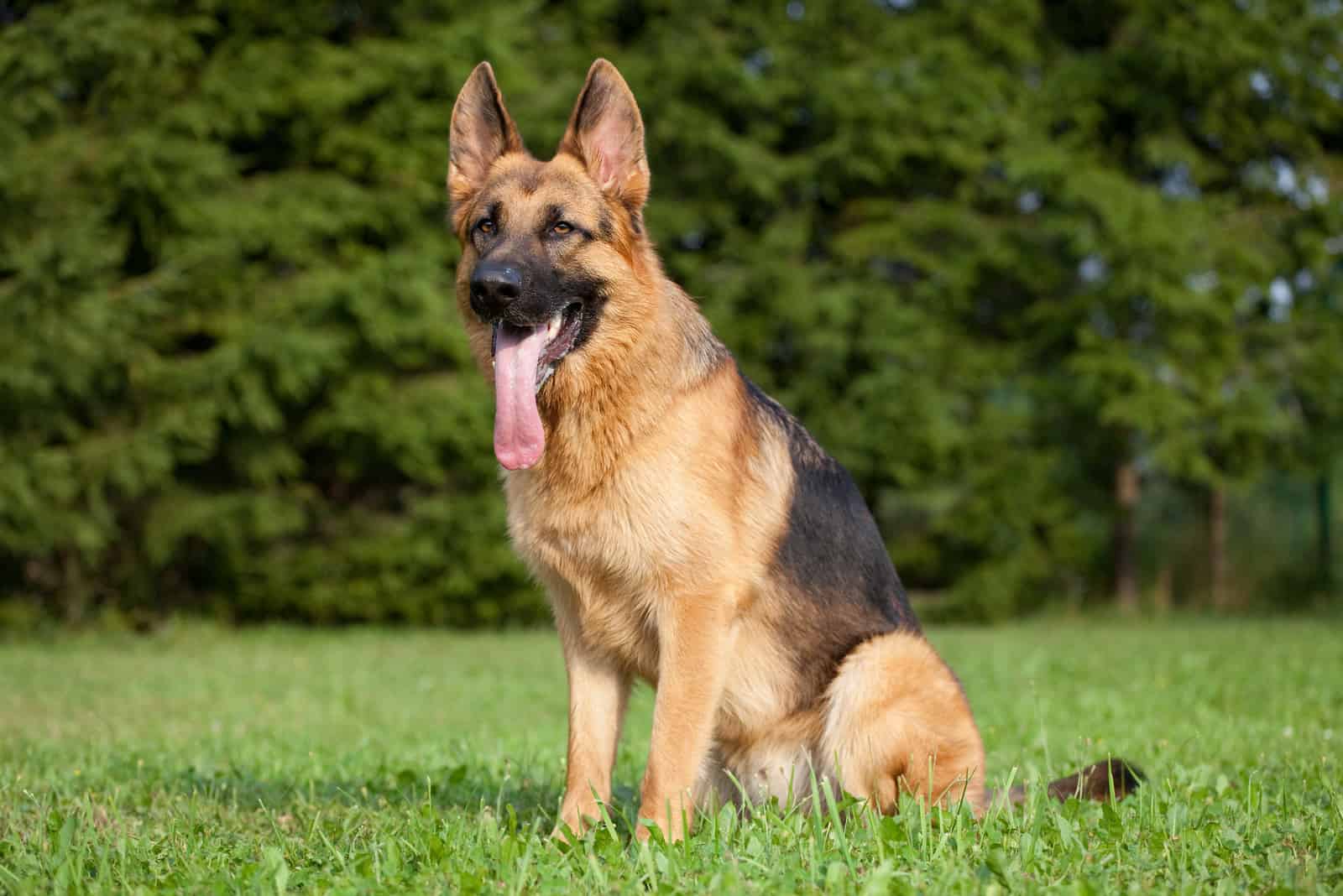
German Shepherds are medium-to-heavy shedders, though owners will probably tell you that their dog falls into the heavy-shedding category!
It’s a fact that all dogs shed, even ‘hairless’ dogs. Try not to fall for marketing ploys about non-shedding dogs, as they don’t exist. Some dogs shed very little, while others shed excessively, depending on the breed.
German Shepherds sheds all year round, and this increases during certain times of the year (see the next section for details), meaning that you’d better get used to having dog hair all over your home if you want one of these fantastic canines.
The GSD has a double coat consisting of a tough topcoat of guard hairs over a soft, furry undercoat. For the most part, it’s the undercoat that accounts for the massive amount of hair that you’ll find around your home.
A double coat has several advantages; it keeps the dog warm in winter, keeps it cool in summer, and the tough outer coat protects the skin from injury.
In fact, German Shepherds of all colors shed! This includes white German Shepherds, liver German Shepherds, and black German Shepherds.
Are German Shepherds Hypoallergenic?
No, the GSD is not considered a hypoallergenic breed.
To be clear, although allergies are linked to shedding, dog hair itself isn’t the problem: proteins in the dog’s dander, urine, saliva, and feces are the real culprits.
These proteins are allergens that our bodies sometimes mistake as being harmful, so we produce histamine in response. Cue the itchy eyes, skin rashes, and explosive sneezing!
Dander is the biggest problem, as these tiny flakes of dry skin stick to the loose hairs and attach themselves to clothes and furniture. This makes it highly likely that the allergens will enter your system via your nose or mouth or connect with your skin long enough to cause a reaction.
Dander is also light enough to float around in the air like dust particles, making it impossible to avoid breathing in.
Sadly, this rules out the German Shepherd as a pet for those with moderate or severe pet allergies.
German Shepherd Shedding Seasons
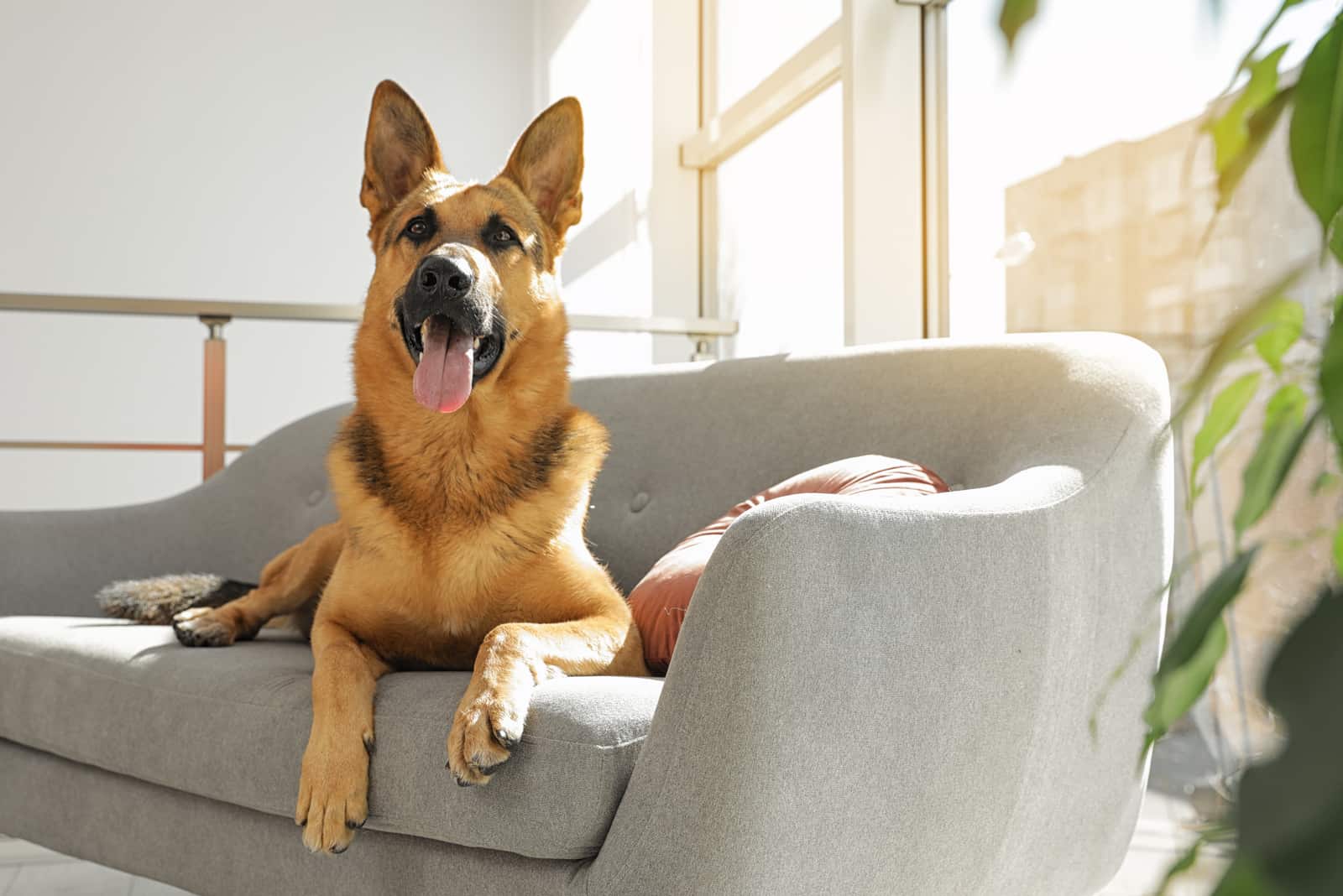
Many dog breeds shed seasonally as their coats prepare for changes in the weather. It’s a trait inherited from their wolf ancestors, from a time when all dogs lived outdoors and had to face the harsh winters and warm summers.
Dogs that shed seasonally do so in spring and fall, when hormones are triggered by the longer or shorter days. Although many people still believe that changing temperatures cause dogs to blow their coats, the real cause is an increase or decrease in the levels of sunlight at certain times of the year.
Even so, the modern dog’s pampered lifestyle increases the amount of hair loss: central heating dries out their skin and coat, causing more hair to fall out.
The dog’s coat starts to thin out in spring, ready for the summer heat. And when fall arrives, the dog sheds its summer coat and grows a thick furry winter coat ready for the icy temperatures.
Although most dogs spend a good part of their lives indoors, many retain the genes that make them shed seasonally.
The shedding seasons typically last between two and four weeks. During this time, it’s advisable to brush your dog every day unless you want to be overwhelmed by loose hair. Many dog owners talk about having ‘tumbleweeds’ blowing around their homes!
Do Long-Haired German Shepherds Shed?
Yes, they do! But here’s a surprising fact: they probably shed less than the GSD with a medium-length coat!
This seems counterintuitive, as you’d expect a dog with long hair to be more of a problem.
However, the long-haired GSD tends to shed steadily all year round and doesn’t lose its coat seasonally. So, overall, it sheds less than the standard short-haired dog.
Despite this fact, it still requires regular brushing to avoid tangles and matting. Tangled and matted hair is painful for dogs and can also cause infections if the skin breaks.
Why Is My German Shepherd Shedding So Much?
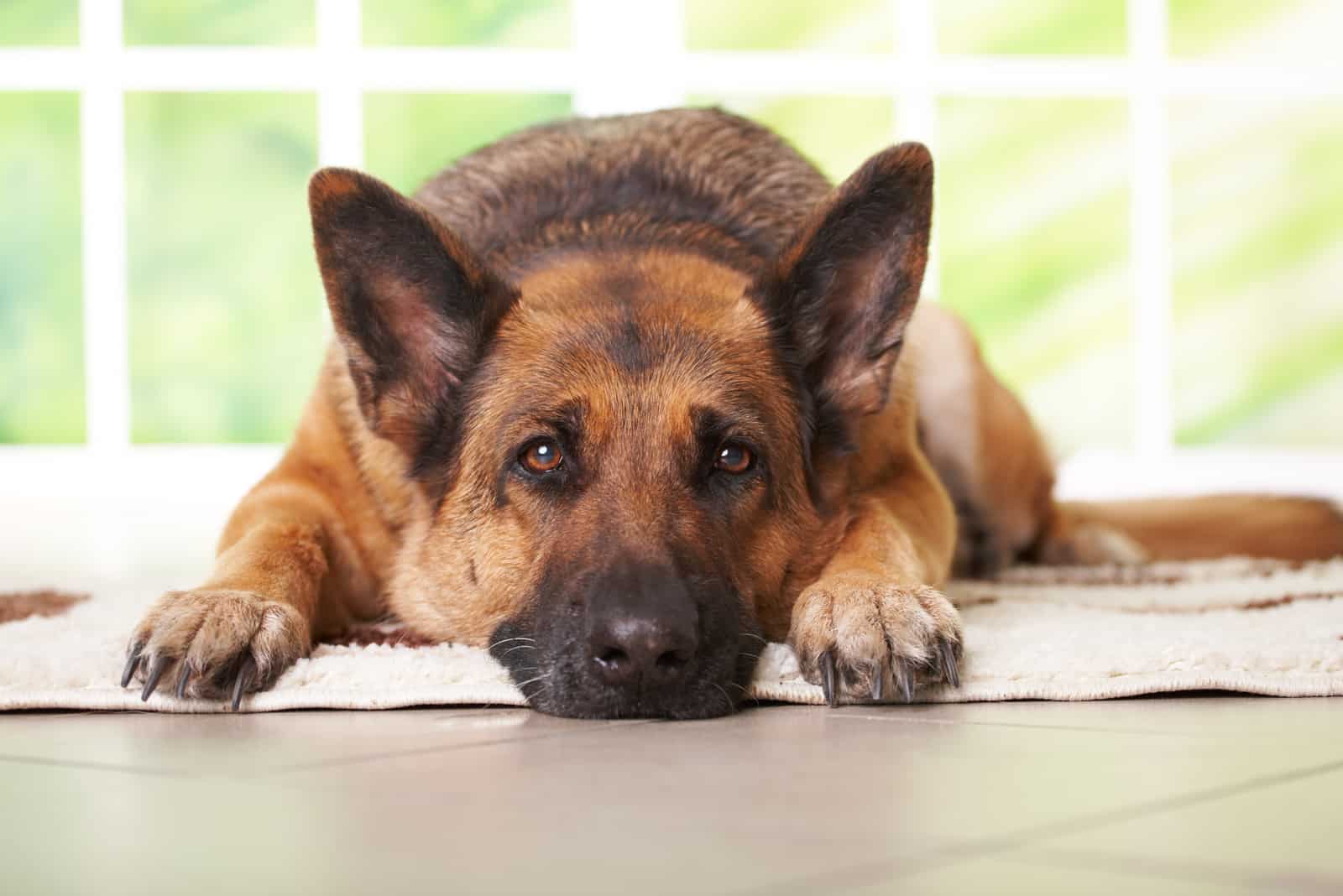
Some dog owners notice that their furry companion is losing more hair than usual. When this happens, it’s best to investigate to see what’s causing it, as excessive shedding may indicate that there’s a problem.
We’ve listed the most common causes of excess hair loss in dogs here:
Health Issues
Several health problems include hair loss as a symptom, and several of these are serious. Never leave it to chance! Always get your pooch checked out by a vet if you suspect any of the following:
• Hypothyroidism is related to a lack of thyroxine, a hormone produced by the thyroid gland that regulates metabolism. Dogs with this condition are lethargic, put on weight (without an increase in appetite), and their fur becomes dull and thin. The condition can be treated, which is likely to be for life as there is no cure.
• Cushing’s disease is caused by too much of the stress hormone cortisol being produced. There are several unpleasant symptoms that can result in diabetes and kidney damage. The dog’s skin and fur are also affected, leading to hair loss.
• Parasites are a major cause of alopecia (hair loss) in dogs. Fleas, ticks, lice, and mites irritate the skin and cause rashes and lesions. Dogs aggravate the problem by scratching at the affected spot, sometimes breaking the skin and allowing infections to take hold.
• Allergies and food intolerances are common among most breeds. Many dogs are allergic or intolerant to beef, chicken, lamb, soy, wheat, eggs, and dairy. They can also react badly to environmental allergens, like pollen, mold, and dust mites. All of these can affect their coat and result in extra shedding.
• Ringworm isn’t a worm, and not always ring-shaped! It’s a fungal infection that sometimes leaves a circular bald patch, but may be any shape. Infected dogs will lose hair in random spots, and the skin may become inflamed and red. The fungus attacks keratin and destroys the hair follicles, meaning that the hair may not grow back. It also causes brittle claws that will splinter and break.
Stress And Anxiety
Yes, dogs stress over things just like we do! They have fears and anxieties that affect their mental health, which spill over into physical symptoms, including increased shedding.
Our furry friends get stressed and anxious about many things:
• Being left alone. Separation anxiety affects millions of dogs worldwide. They love you unconditionally and hate it when you leave them, which causes a great deal of stress!
• A change of routine. Dogs like things to be done at the same time every day. Any alterations make them uneasy and stresses them out.
• Meeting a strange dog or human for the first time. German Shepherds are generally friendly with strangers and other dogs if they have been adequately socialized and are taught that the person or animal is not a threat. German Shepherds without this advantage can be hostile and aggressive and become anxious about meeting anyone new.
• Unfamiliar sounds or loud noises. Dogs have excellent hearing and pick up on sounds well beyond our range. Some are obvious to us, while others we don’t have a chance of hearing, so we may not even realize what the problem is. Again, socialization will help, especially if the breeder has used the Puppy Culture or Super Dog methods to improve the pup’s confidence and ability to cope with different situations.
• Traveling long distances. Some dogs really don’t like traveling! The signs of anxiety are obvious: panting, whining, drooling, and pacing (if they have room).
• A sour atmosphere at home. Family rows, sickness, money worries, etc., can affect your pooch as they pick up on your vibes.
All of these factors can induce stress and anxiety, leading to hair loss. It’s up to you to watch out for these and try to fix them.
How To Stop A German Shepherd From Shedding
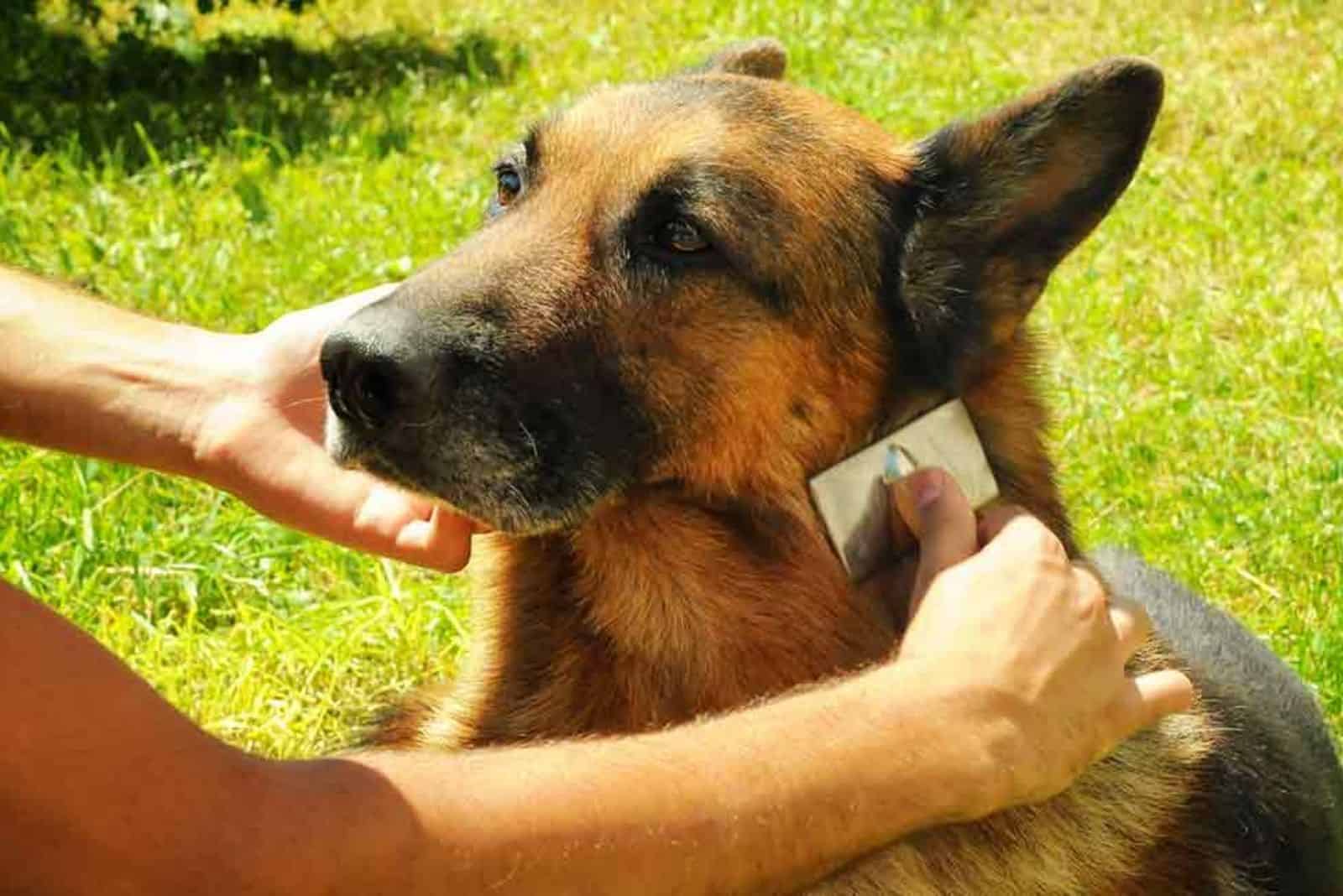
Understandably, German Shepherd owners might look for ways to cut the amount of dog hair in their homes, but the truth is that you’ll never stop it completely.
Even so, there are several ways to reduce how much hair your dog sheds.
Before we look at these, it’s essential to note that shaving your German Shepherd is not the answer! Some dog owners clip or shave their pets heavily to reduce the amount of loose hair in their homes and to keep their pets cool in summer.
This is a bad idea, especially for German Shepherds! First, a dog’s coat helps them regulate body temperature, and it provides insulation that warms them in cold weather and traps cool air beneath the outer coat in summer.
Shaving a German Shepherd’s coat will upset the balance, and your dog will feel cold most of the time. They will also be at severe risk of sunburn, resulting in skin cancer.
If you really want to do something about shedding, here are some tips:
Regular Brushing Works Wonders
You’re going to have to brush your furry pal three or four times a week. And during shedding season, it’s wise to do this every day.
Don’t go for cheap brushes as they rarely last long, and you’ll be forced to buy another pretty soon. A good de-shedding tool will be your best friend here! Check out pet supply stores or go online and look at reviews on Amazon and elsewhere, and you’re sure to find a good undercoat rake (something like the Furminator will do nicely).
These tools get right into the undercoat and pull out all the dead hairs.
If you need a break, consider using a professional groomer to do the job for you once in a while.
Bathe Your GSD Every Three Months
A good bath with a branded dog shampoo every three or four months will keep the coat in good condition.
Of course, if they come home caked in mud (or worse!), you’ll have to clean them up. However, washing them any more frequently than this will damage their fur and dry out their skin, leading to further hair loss.
Only Use High-Quality Dog Food
It’s a known fact that a poor diet affects hair growth and skin health. The best dog foods have all the nutrition your furry companion needs, but you might want to consider using supplements to ensure they get enough.
A balanced diet should include omega-3 fatty acids, which are essential for a healthy coat. These are present in foods such as olive oil and flax seeds that can be sprinkled over your dog’s food.
Do German Shepherds Shed? The Verdict!
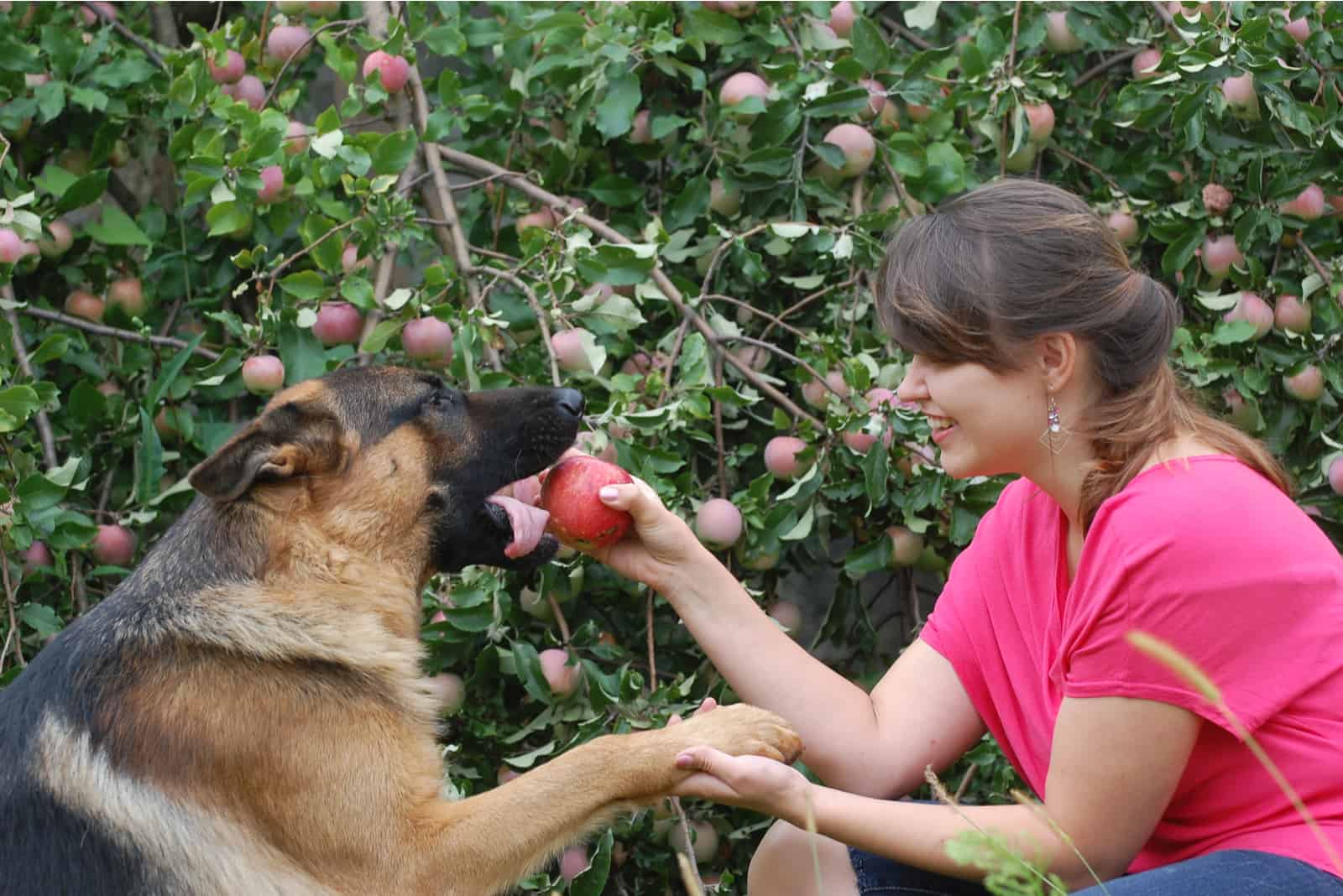
There’s no escaping the fact that German Shepherds are heavy shedders.
Coat blowing aside, your GSD will drop hair around your home every day, so you need to be prepared.
A long-haired German Shepherd may shed less, so this could be an option, but you’ll still need to deal with a good amount of hair all year round.
Another thing to note is that a German Shepherd Puppy will shed its fluff as its adult coat grows. This happens between four and six months of age, and there will be a lot of fur everywhere during this stage!
So, as a German Shepherd owner, you have to be resigned to the fact that dog hair will be a fact of life. However, you can manage the amount of hair loss with regular brushing, a healthy diet, and plenty of exercise and mental stimulation. And vacuuming your home thoroughly every few days will eliminate most of those pesky hairs!
All in all, German Shepherds are amazing animals. If you can get a handle on their shedding, you’ll have a loyal friend for life.
And if you still want to know why are German Shepherds so loved, click here to read some famous German Shepherd quotes.
